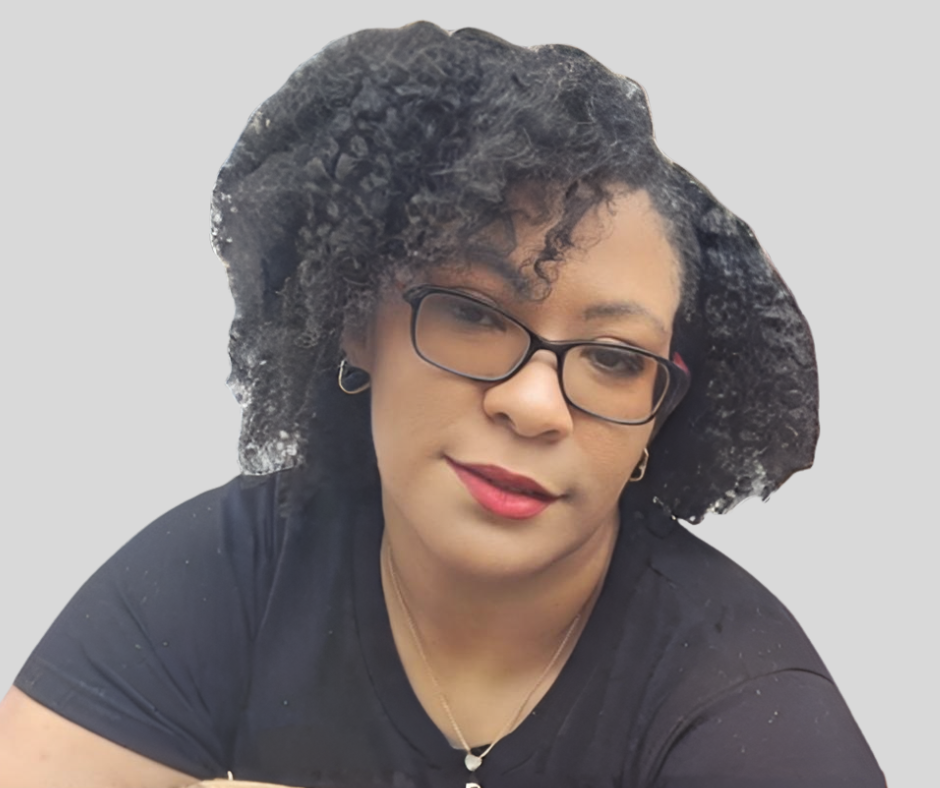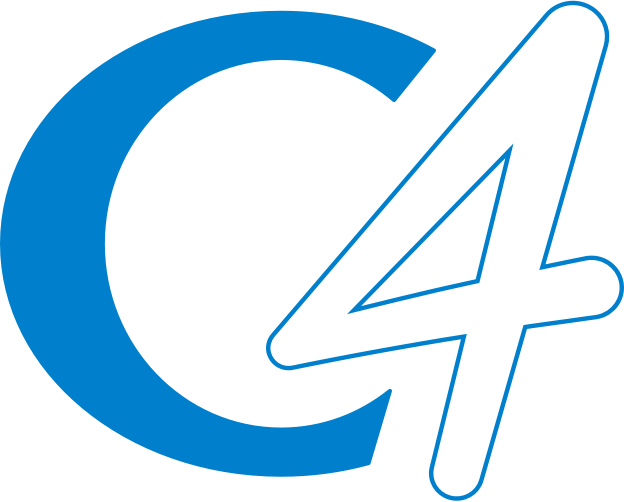Blog
Employee Spotlight: Alicia Kane
We sat down with the new Director of Specialized Services, Alicia Kane, to talk about her work at C4’s Drop-In Center. Alicia grew up in the Chicago suburbs, received her undergraduate degree in social work from Michigan State University, and earned her master’s degree at Florida State University. After leaving C4 in 2020, she spent two and a half years at Envision Unlimited before coming back to accept her current role. This interview has been edited for length and clarity.
C4: To start off, can you tell us a bit about yourself?
Alicia Kane: I grew up in the suburbs here mostly. I moved to Michigan when I was in high school – my mom works for Kellogg, so we moved out there – and then I went to Michigan State for undergrad. I majored in social work, then went to Florida State for my master’s in social work as well. I graduated, realized I’m Midwestern at heart – though I don’t always want to be – and moved back to the Chicago area. I had two jobs after I graduated, but they were both pretty short term, so C4 was really the first place I had gotten a job, about two years after I graduated school. It was really the first company I’d been at for a long time after graduating. I have a partner and we own a home, and we have a dog. We like to go to the movies, and we are in a bowling league, so that’s fun. We hang out with our friends. He’s from the suburbs of Chicago as well, so a lot of friends still live in the area, thankfully.
C4: When were you first at C4? If you want to tell us about that.
AK: So, I started at C4 originally in November of 2014. I was working in the Williams and Colbert program and AOB and PSR programs, two that aren’t around anymore. Not too long after I started, I took over the role of Williams quality administrator, so I helped people move from nursing homes to their own apartments. The program had been going on two or three years before I started, and I managed it for almost five years before transitioning to a QA role with [Director of Quality and Compliance] Dennis Peterson for a little bit. In July of 2020, there were CEO changes and COVID, and I had a little bit of feeling like maybe it was the right time for me to leave C4. So, I got a job at Envision Unlimited, which is another community mental health agency. They have a smaller mental health focus and a very large developmental disabilities program called the IDD program. So, they have a bunch of group homes, a bunch of day centers. They really serve a large portion of folks who have that IDD diagnosis all over the city. I was on the mental health side, which was a smaller section, but that was a couple years. I always enjoyed my time at C4 and knew that, when the time was right, I’d like to come back at some point. Thankfully there was the right position at the right time, and it kind of worked out for me to come back, about two and a half years after I left.
C4: What about the culture or C4’s mission made you want to come back?
AK: C4 has such a longstanding history in the community. Not only do they serve a big number of clients every year, but I also really feel like they’re invested, and they show up. Especially being at Broadway, you can’t help but feel like this is our clients’ second home. They’re there all the time. As in the Williams and Colbert program, I help move a lot of people out of nursing homes, who then come to the Drop-In every day into ACT and CST. I get to see them move from a nursing home where everything was done for them to being independent with their own apartments, and it’s just great to be a part of a community at Broadway. Everybody’s always looked out for each other, and it really does feel like a little family. We have some difficult clients and some difficult situations we deal with. Folks are mostly male, mostly people of color, in their 40s, 50s, and 60s. They tend to have a harder, tougher life. Things haven’t gone very easily for them, so it’s just good to see them playing cards with their friends or talking with different staff members. It’s a great environment.
C4: Could you say more about that? What does a typical day look like for you?
AK: It depends on the day. Usually, there’s always clients that are waiting outside before our doors even open at 8:30. They start heading up right to the Drop-In Center. A lot of teams have their morning meetings, so they’re meeting each other, getting situated. We work a lot with our nurses to figure out who needs injections and other medication disbursement, so we always start the day with a bit of a meeting. And then it just kind of goes from there. People meet with their clients in the Drop-In Center, or they do therapy, or clients attend groups. Staff are taking clients out into the community for doctors’ appointments, different activities like shopping or picking up medications, or different things you and I would do on a day-to-day basis. Some people come up to the Drop-In Center and they hang out all day. They go to some groups, they talk to their friends, they watch movies, they use the computers. And then towards the afternoon they start going back home, so the afternoon tends to be a little bit quieter. It’s just a lot of in and out. That elevator opens a hundred times an hour, and you don’t know who’s going to come up and what’s going to happen that day.
C4: Tell us about an experience you had working with a client that made you grow as a clinician. And did it change the way you approach the work?
AK: I’ve had quite a few interactions with clients. Being gone two and a half years – and not just being gone two and a half years but being gone during COVID – and not really knowing who was still going to be around, who was going to still be here when I got back, was a little scary and a little nerve wracking. Coming in, even with my mask on, people go, “Hey Alicia,” or “Hey lady,” – I’ll respond to that too. If they recognize me but don’t remember my name, that’s okay. Having people remember me as I came back after a couple of years – a really hard couple of years – was really exciting and powerful. Those are the good stories. Moving people out of nursing homes and into their own apartments has always been a highlight to me. It’s very exciting to see them find a community at C4 and fit in and really seem to hit their stride a little bit. And to have dealt with death and loss from our clients, that’s always really tough, too. That changes you for sure.
C4: What’s one thing you want people outside your sector to know about the work you do?
AK: When I tell people I’m a social worker and that I work in community mental health, they always go, “Oh my gosh that must be so hard.” It’s really not that hard. There are difficult days, but I went to school for this, and like everybody else, I have a passion for it and it’s what I want to do; it’s what I keep doing. I wish people would realize that the most difficult parts are the politics around it – Medicaid and billing and getting our clients the resources they need. I feel like if society would look out for each other a little more, it would be a lot easier to do the work I do. Everybody knows somebody who has been affected by mental illness, so they say, “Oh you’re doing such a great job, you’re in a great line of work.” But you know, when it comes down to it, not everybody shows their appreciation in the way that would be most beneficial to our clients. I wish people would care a little bit more about their fellow human beings who have struggled a little bit more than they have.



